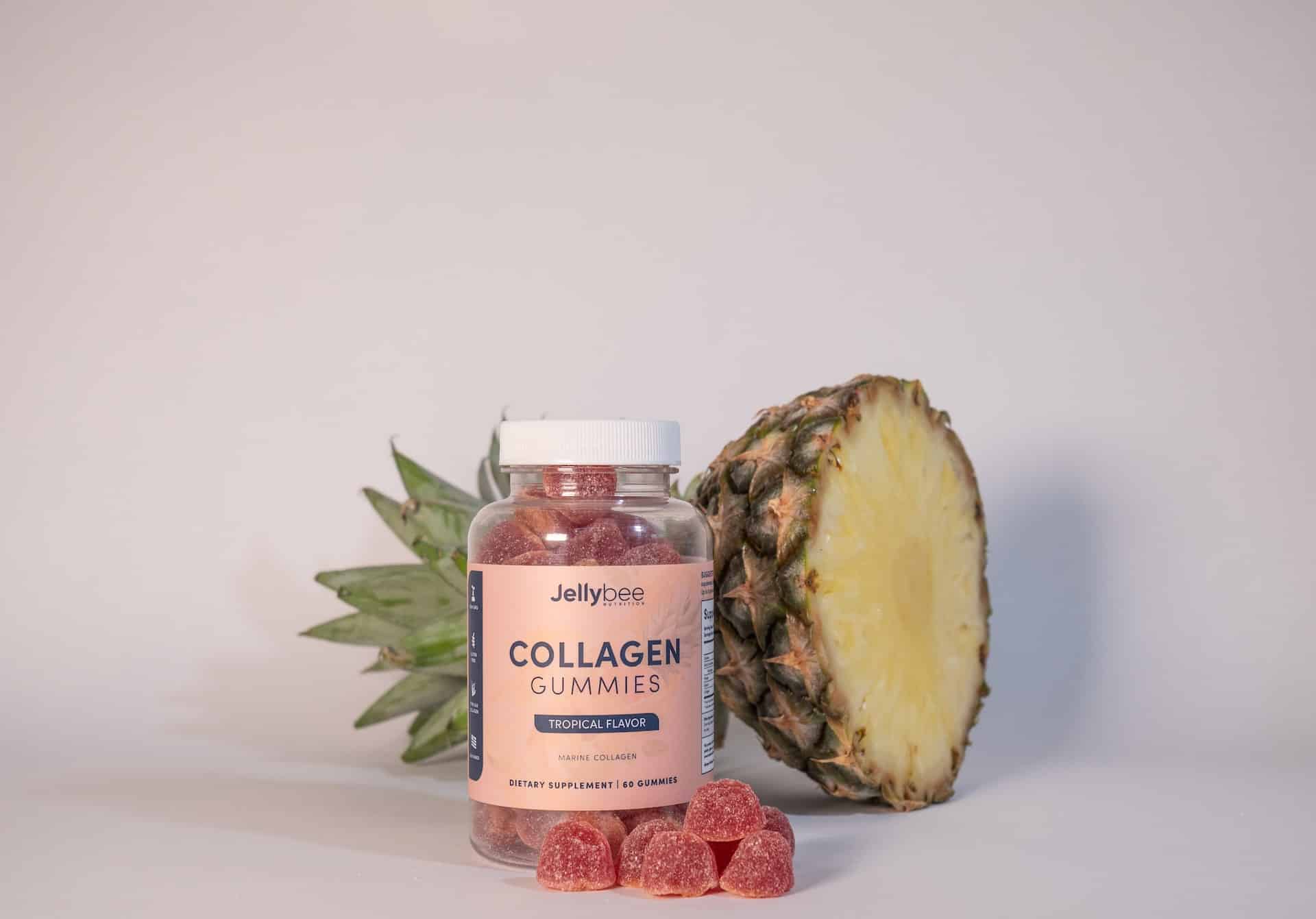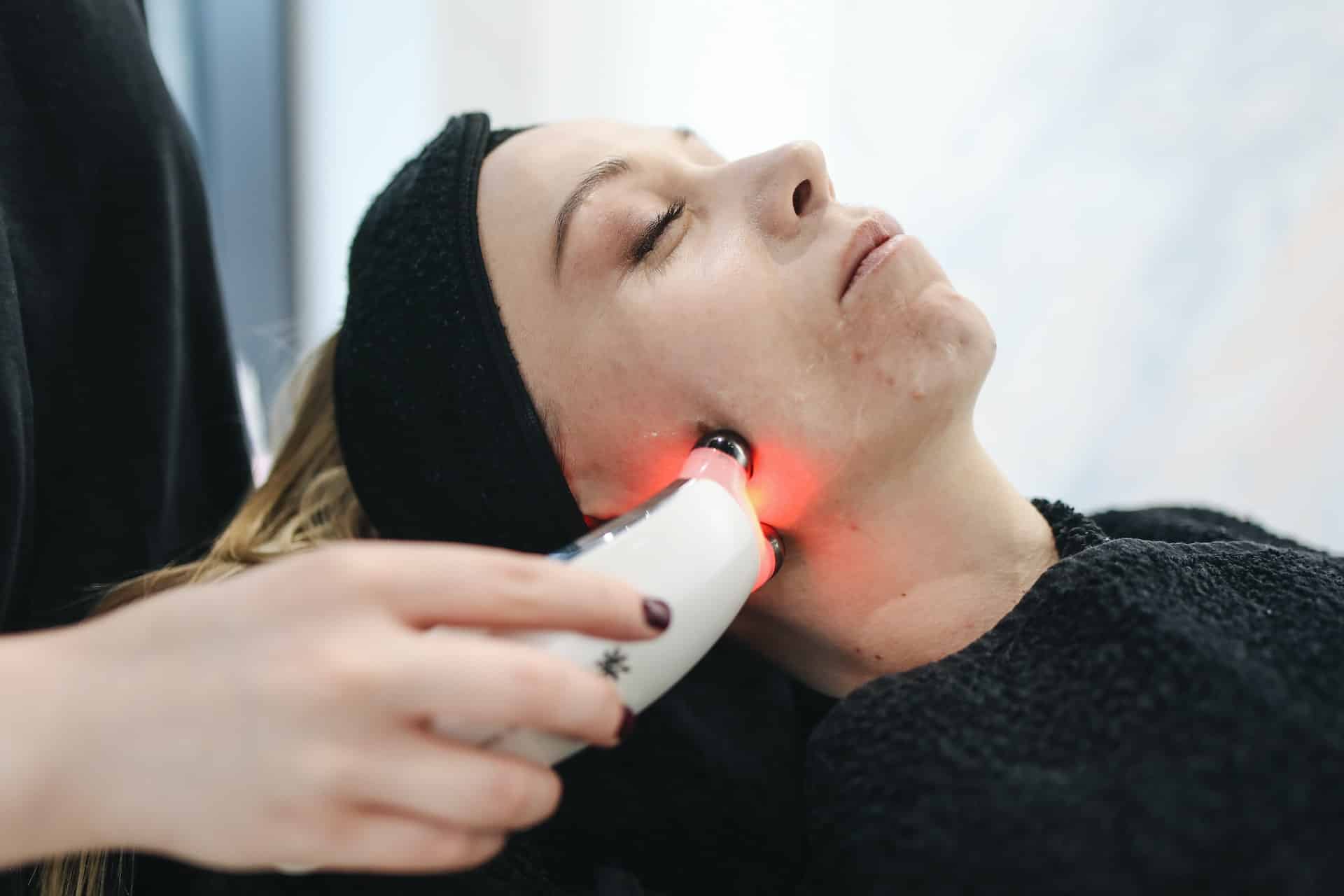One of the essential components for glowing and youthful complexion is collagen. Collagen is a naturally occurring protein in the body that provides structural support to the skin. Adopting healthy habits can help your body produce more collagen and maintain a youthful appearance. Unfortunately, our collagen production decreases as we age. Wrinkles, fine lines, and sagging skin, all of these are signs of collagen loss in face.
Whether you prefer natural remedies or the latest cosmetic treatments, there are various ways to boost collagen levels in the face and achieve a healthy and plump complexion. So read our article to discover some of the best tips for getting more collagen in your face!
How To Restore Collagen In the Face Naturally?
-
Consume Collagen Rich Foods
Consuming collagen-rich foods is a natural and best way to increase and restore collagen levels in the face naturally. Various animal-based foods including bone broth, chicken, beef, and fish boost collagen production.
Water is essential for collagen production as Hydration can increase collagen in face fast. The skin has several layers, and the outermost layer contains a lot of water. When dehydrated, your skin can appear dry, dull, and flaky. Adequate water intake maintains your skin’s hydration levels and promotes a healthy and vibrant appearance.
Also, Collagen is made up of amino acids, which need to be properly hydrated to form collagen fibers. Drinking enough water ensures the amino acids are properly hydrated and available for collagen production.
-
Getting Enough Vitamin C
Getting enough vitamin C can restore collagen in your face naturally. Here’s how vitamin C can help boost collagen:
- Vitamin C converts pro-collagen into collagen. Without enough vitamin C, collagen production can be impaired.
- Antioxidants help to protect against free radicals, which can damage collagen fibers and lead to premature aging. Vitamin C is a potent antioxidant that can help to protect against free radical damage and support healthy collagen production.
- Vitamin C can help to improve skin texture and tone by supporting collagen production.
- Vitamin C is a key component of collagen synthesis. Good dietary sources of vitamin C include citrus fruits, strawberries, kiwi, broccoli, and red peppers. Vitamin C supplements are also widely available.
How Do I Get More Collagen In My Face With Collagen Supplements?

Specific collagen supplements are available in the form of powders, capsules, or gummies. It’s recommended to pair them with other nutrient-rich foods that support collagen production, such as fruits and vegetables that are high in vitamin C.
-
Collagen Supplements
Collagen supplements are the best collagen treatment for the face. They are a popular way to increase collagen intake and support healthy skin, hair, and nails. Here are some tips on how to get collagen from supplements.
- Choose the Right Type of Collagen supplement. These supplements come in different forms, including powders, capsules, and gummies. Collagen Supplements can also be sourced from animals such as cows, pigs, and fish. Moreover, Type I and III collagen are most commonly used for skin health, while type II collagen is often used for joint health.
- Look For Hydrolyzed Collagen as Hydrolyzed collagen molecules get absorbed by the body more easily. Also, go for collagen supplements that are labeled as hydrolyzed for optimal absorption.
- Take Collagen Supplements With Vitamin C as it is essential for collagen synthesis. So taking collagen supplements with a source of vitamin C, such as orange juice or a vitamin C supplement, can help to maximize collagen absorption and production.
- Collagen supplement dosages can vary depending on the product and individual needs. So it’s important to follow the dosage instructions on the product label and consult a healthcare professional if you have any concerns.
- Be patient with the Collagen supplements as they may take several weeks or even months to show visible results. However, consistent use over time can support healthy collagen production and improve skin health.
Best Treatments for Collagen Production In Face And Body

Some of the best treatments for collagen production are
-
Topical Collagen Creams And Serums
A variety of topical products contain collagen and other ingredients that can help stimulate collagen production and improve skin elasticity. Look for products that contain collagen peptides or amino acids, as the skin absorbs these more easily.
-
Micro-Needling
Many people ask, does pinching skin stimulate collagen production? Well, micro-needling is the answer!
This treatment involves using a small device with tiny needles to create tiny punctures in the skin. It stimulates collagen production and can help to reduce the appearance of fine lines, wrinkles, and acne scars.
-
Laser Therapy For Collagen Production
Certain laser treatments can help to stimulate collagen production by heating the skin and creating controlled damage. This triggers the body’s natural healing response, increasing collagen production and improving skin texture.
Uses radiofrequency energy to heat the skin and stimulate collagen production. It also helps in improving skin firmness.
-
Chemical Peels To Get More Collagen In Face
These treatments involve applying a chemical solution to the skin, which causes the top layer of the skin to peel away. This process stimulates collagen production and can reduce wrinkles, and age spots.
It’s important to note that all these treatments can effectively boost collagen production and improve skin health. However, it’s important to consult with a qualified skin care professional before undergoing any of these treatments to ensure they are safe and appropriate for your skin type.
Collagen Benefits For Face And Skin

Collagen is the basic component of our skin and our skin has a considerable portion of collagen to maintain a healthy and youthful appearance. Here are some of the benefits of collagen for the skin:
-
Collagen In Face Improves Skin Texture
Collagen is a structural protein that supports the skin, helping to keep it firm and elastic. As we age, the production of collagen in the face and body decreases, leading to less supple skin which is more prone to wrinkles and fine lines. By boosting collagen levels in the skin, you can improve its texture and reduce the signs of aging.
-
Collagen Boosts Hydration
Collagen is also important for keeping the skin hydrated, as it helps to retain moisture. A lack of moisture can make the skin appear dull and dry, leading to a rough or flaky texture. So increasing collagen levels can enhance the skin’s ability to retain water, leading to a plumper and more hydrated appearance.
-
Reduces Inflammation
Collagen contains amino acids like glycine and proline, which have anti-inflammatory properties. Keep in mind that inflammation can contribute to various skin issues, including acne, rosacea, and eczema. This means that collagen can help reduce redness, swelling, and other skin inflammation signs.
-
Promotes Healing
Collagen is involved in the skin’s healing process, as it provides structural support and helps repair damaged tissue. This makes collagen useful for treating wounds, scars, and other skin conditions.
-
Collagen Enhances Skin Tone
Finally, collagen can even out skin tone and improve its overall appearance. As lack of collagen in face can lead to thinner and more translucent skin, which can make imperfections more noticeable.
In conclusion, collagen is an essential protein that plays a key role in maintaining healthy skin, hair, and nails. As collagen production naturally decreases with age, there are several ways to boost collagen and support healthy skin. Consuming collagen-rich foods and incorporating external treatments can definitely boost collagen production. Moreover, making lifestyle changes can also help to preserve collagen and prevent premature aging.



